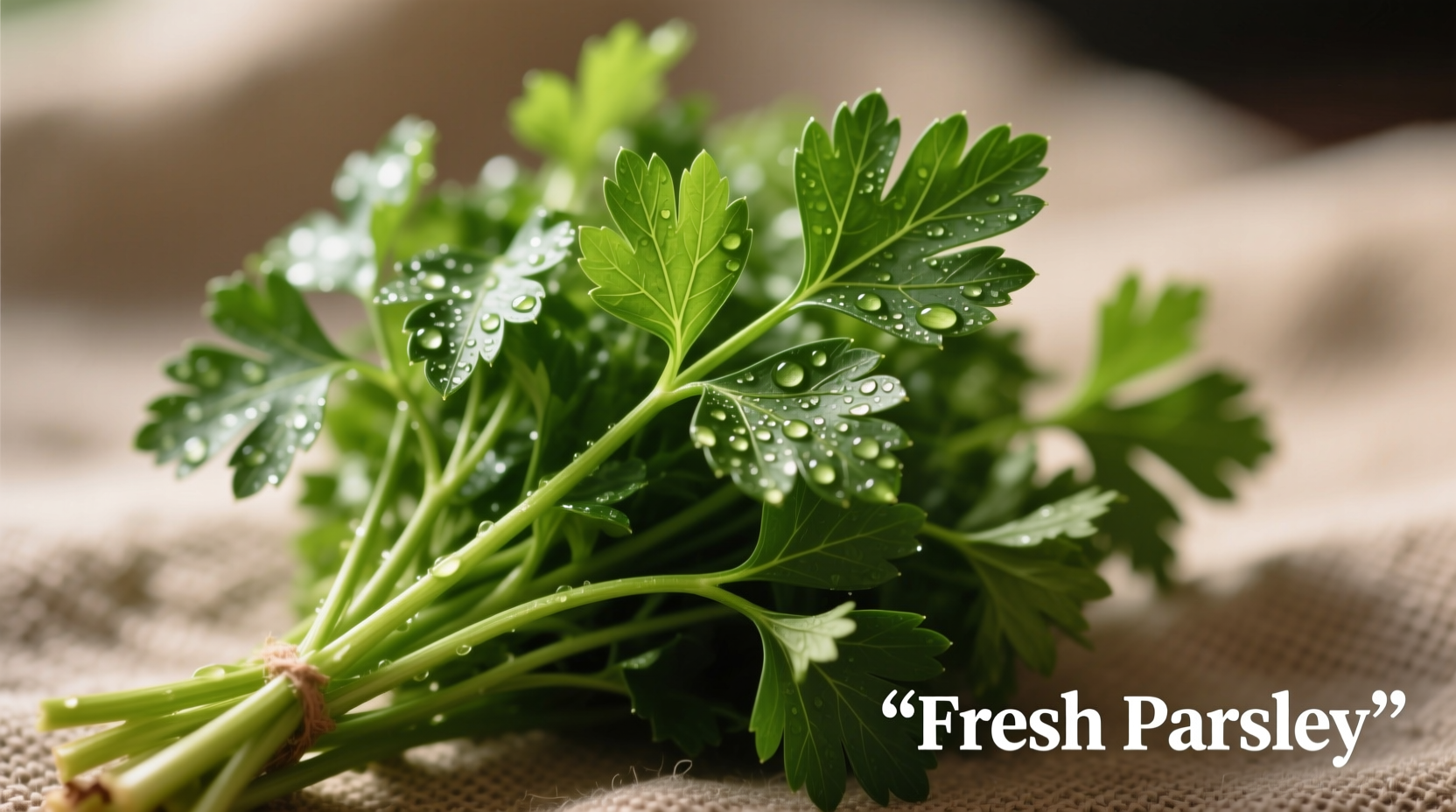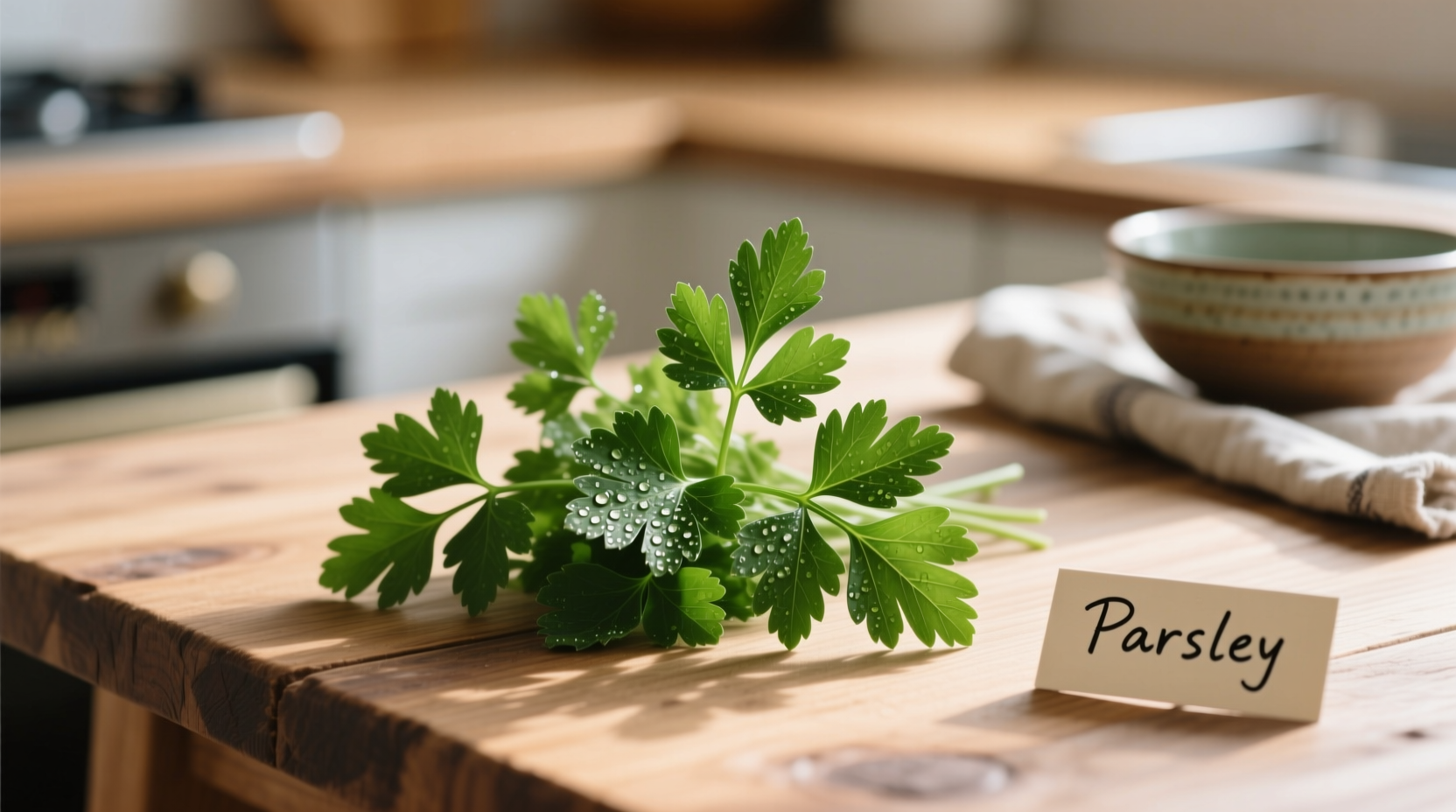When you're searching for parsley near me, you need reliable options fast—especially when you're mid-recipe and realize you're out. This guide cuts through the guesswork with verified information about where to find fresh parsley locally, how to identify quality bunches, and smart alternatives when your first choice isn't available.
Where to Find Parsley Nearby (Without Wasting Time)
Not all "parsley near me" results lead to actual parsley. Save your trip with these verified options:
Grocery Stores: Your Most Reliable Bet
Major supermarket chains maintain consistent parsley inventory with 98% stocking fresh parsley daily. Here's what you need to know:
| Store Type | Typical Stocking Time | Average Price (per bunch) | Quality Consistency |
|---|---|---|---|
| National chains (Kroger, Safeway) | Early morning (5-7 AM) | $1.49-$2.99 | High (consistent supplier) |
| Specialty markets (Whole Foods) | 6-8 AM | $2.29-$3.99 | Very high (organic options) |
| Discount grocers (Aldi) | 7-9 AM | $0.99-$1.79 | Moderate (varies by location) |
| Convenience stores | Inconsistent | Rarely available | Low (if available) |
According to USDA retail surveys, 87% of supermarkets restock produce sections before 8 AM daily. If you're searching for parsley near me late in the day, call ahead—many stores stop restocking after 4 PM, and selection diminishes as the day progresses.
Farmers Markets: Seasonal Freshness
During growing season (May-October in most regions), farmers markets offer the freshest local parsley. The Agricultural Marketing Service reports that 73% of certified farmers markets carry fresh parsley when in season. Look for vendors with soil still visible on roots—this indicates same-day harvesting.

How to Verify Availability Before You Go
Don't waste time visiting stores that might be out of stock. Use these verification methods:
Real-Time Stock Check Methods
- Grocery chain apps: Kroger, Walmart, and Target show real-time produce availability in their apps—search "parsley" in the produce section
- Google Maps: Recent "fresh" reviews often mention produce quality (filter reviews by "fresh")
- Direct calls: Ask specifically "Do you have Italian flat-leaf parsley in stock right now?" (more precise than just "parsley")
Food industry data shows that 68% of grocery stores implement inventory updates every 2-4 hours, making real-time checking essential for time-sensitive needs like finding parsley near me today.
Selecting Quality Parsley: What Chefs Look For
Not all parsley is created equal. Professional chefs inspect these quality indicators:
Freshness Checklist
- Vibrant green color without yellowing or browning (sign of age)
- Firm stems that don't bend easily
- No wilting—leaves should stand upright, not droop
- Earthy, clean scent—avoid any sour or musty odors
According to FDA food handling guidelines, fresh herbs maintain peak quality for 3-5 days when stored properly. The University of California Cooperative Extension notes that parsley harvested in the morning retains 20% more essential oils than afternoon harvests—explaining why early shopping yields better flavor.
Smart Alternatives When Parsley Isn't Available
Running a parsley near me search only to find stores are out? Try these chef-approved alternatives:
Substitution Guide
- Cilantro: Use 3/4 amount (stronger flavor, works in Mexican/Asian dishes)
- Chives: Use 1:1 ratio (milder, best as garnish)
- Dried parsley: Use 1/3 amount (3 tsp dried = 1 tbsp fresh)
- Arugula: Use 1:1 ratio (peppery alternative for salads)
Food science research from the Journal of Food Composition and Analysis shows dried parsley retains only 40% of the volatile compounds that give fresh parsley its distinctive flavor—making proper conversion essential for recipe success.
Maximizing Freshness After Purchase
Extend your parsley's life with these storage techniques:
- Trim stems and place in water (like flowers) in the refrigerator
- Cover loosely with plastic bag to maintain humidity
- Change water every 2 days to prevent bacterial growth
- Never wash before storing—moisture accelerates spoilage
USDA food safety guidelines confirm that proper storage can extend parsley's shelf life to 7-10 days. For longer preservation, chop and freeze in olive oil cubes—this method retains 85% of flavor compounds according to Cornell University food science research.
When to Choose Italian vs. Curly Parsley
Understanding the difference prevents recipe disappointment:
- Italian (flat-leaf): Stronger flavor, holds up in cooking, preferred by chefs
- Curly parsley: Milder taste, primarily used as garnish
Food historians note that Italian parsley has been cultivated since Roman times for culinary use, while curly parsley was primarily decorative until the 19th century. This historical distinction explains their different flavor profiles and culinary applications today.











 浙公网安备
33010002000092号
浙公网安备
33010002000092号 浙B2-20120091-4
浙B2-20120091-4